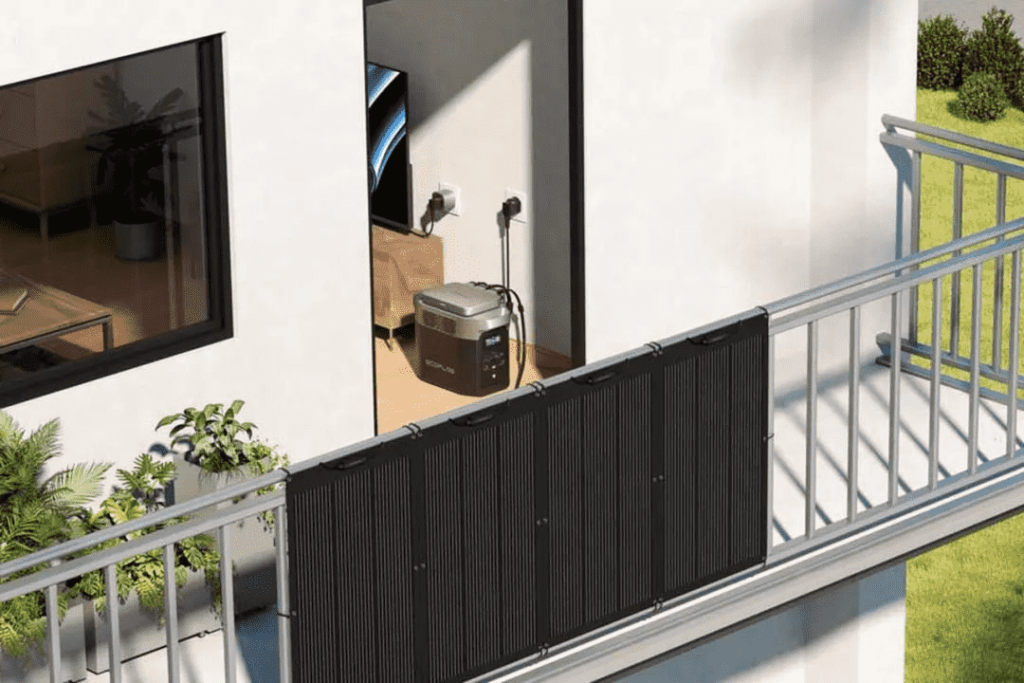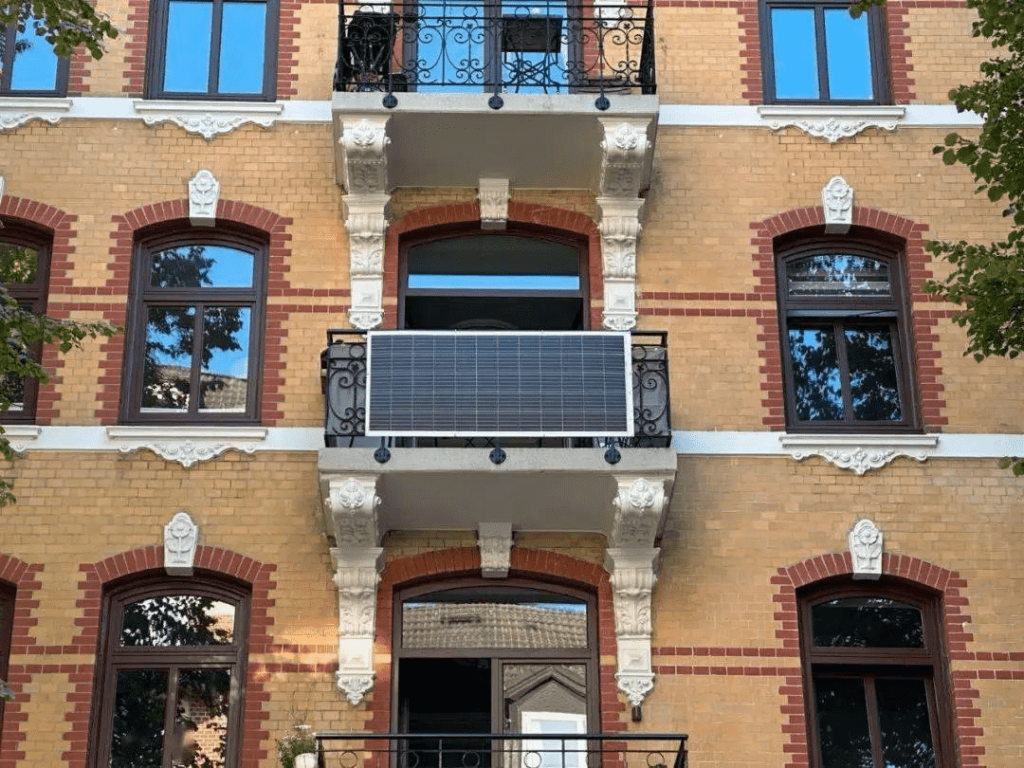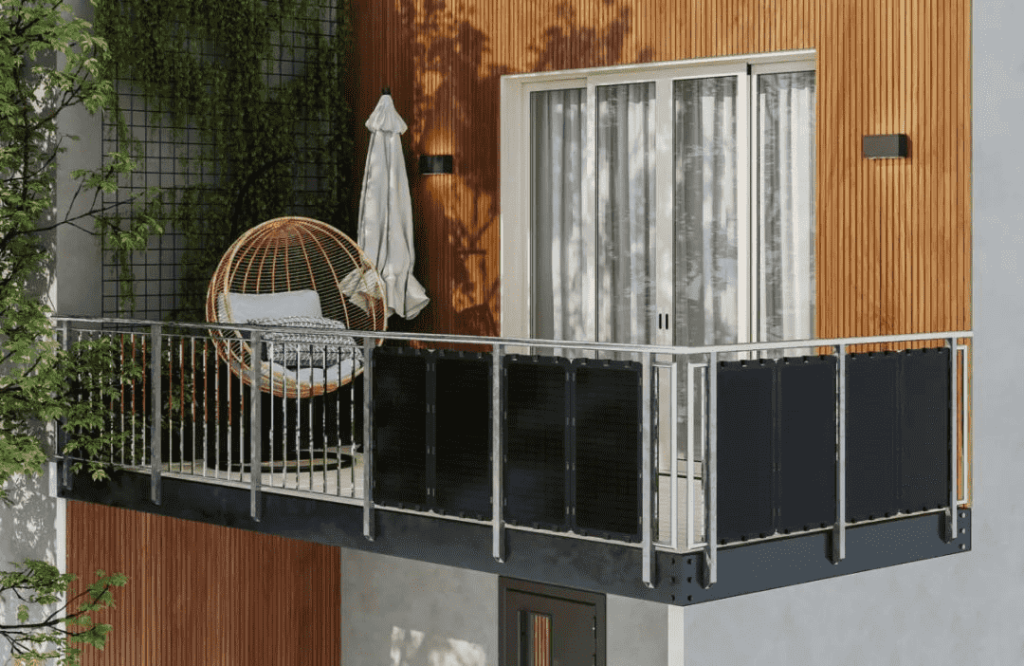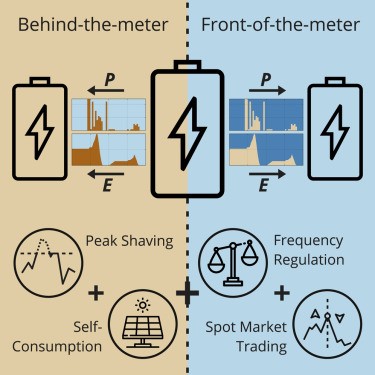When home energy meets policy: exploring the new trend of balcony photovoltaics in Germany
A series of policies have been released across Germany to make balcony PV even more attractive in 2023. For example: Starting from January 1, 2023, the value-added tax on balcony photovoltaic systems will be reduced from 19% to 0%. Promote balcony photovoltaics nationwide. Additionally, there are an increasing number of subsidy programs and grants available for purchasing plug-in solar systems. Many cities and municipalities will pay a portion of the acquisition cost. The federal states will also launch support programs for balcony power plants in 2023.
Here, we have compiled an alphabetical list of balcony photovoltaic subsidy programs, which mainly cover the balcony photovoltaic subsidy programs provided by various federal states and cities. Due to space limitations, we can only list some major urban policies. If you need to know about other regional policies, please leave a message in the background and we will reply as soon as possible.
The situation in each federal state

1
Berlin
Berlin has been promoting the purchase of plug-in solar equipment to finance 14,000 apartments from February 10, 2023. Renters whose main place of residence is in Berlin are eligible to apply (submit before purchasing) and receive up to €500 subsidy. Grants are available for one plug-in solar device per apartment. This program is part of the Solar PLUS program and applications can be submitted to IBB Business Team GmbH.
2
Mecklenburg-Vorpommern
Balcony photovoltaic systems purchased from November 7, 2022 will receive a unified subsidy of up to 500 euros. Applications will be accepted after purchase and installation. According to the agency, all funding subsidies for landlords have been exhausted, but tenants renting in Mecklenburg-Vorpommern can still submit applications from July 2023.
3
Schleswig-Holstein
The government will provide irregular subsidies. The latest subsidy will start on September 5, 2023, funding a total of 10,000 balcony solar systems. The government will provide cost subsidies of up to 50%, with a maximum subsidy of 200 euros per system. It should be noted that in order to qualify for funding, balcony PV power plants must be connected using Wieland plugs. If you are a beneficiary of housing benefit, civil welfare or basic security, you may also receive a subsidy of up to 350 euros.
Situation of each city
– Aachen :
The city will pay a flat fee of €200 for the purchase of a plug-in solar system between 150 and 600 watts. You must apply before purchasing your system.
– Augsburg:
Starting from mid/late September 2023, plug-in photovoltaic equipment with an output of up to 450 Wp will receive a grant of €100, while those with an output of more than 450 Wp will receive €200. Funding applications can be submitted and approved prior to purchase.
– Bonn:
As of April 1, 2023, funding will no longer be available for plug-in solar equipment installed on house and garage roofs. However, mini solar systems will continue to receive subsidies if they are installed on a balcony, terrace or garden. Tenants receive €600 per kilowatt of power output (up to a maximum of €360 for a system with a feed power of 600 watts, which is 60% of the acquisition cost),
– Braunschweig:
Funding has been discontinued as of May 2023. The original plan was to provide subsidies of up to 400 euros for plug-in photovoltaic systems with an output power between 250 and 600 watts. Tenants need permission from landlords. When connecting the system, you must comply with the regulations of the grid operator.
– Darmstadt:
A mini photovoltaic system costs 200 euros for one solar module (300 watts) and 400 euros for two solar modules (600 watts). For balcony systems with an output of up to 600 watts, the government will cover up to 50% of the acquisition cost. Low-income families receive higher subsidies. If the user takes part in the “Energy Check” program, only €75 will be paid for a 300-watt system.
– Düsseldorf:
For plug-in photovoltaic systems with an output of 600 watts, a high subsidy of 50% is available, up to a maximum of 600 euros. The condition is that the components are certified to IEC standards and comply with the regulations regarding electricity meters. For low-income families the subsidy can even amount to 80% of the total cost (maximum €800 per application).

– Erlangen:
A subsidy of 50 euros per 100 watts is given, up to a maximum of 300 euros.
– Essen:
A €200 subsidy is available for modules with a rated output of at least 300 Wp and an inverter with a maximum output of 800 VA (volt-amperes). Must apply prior to purchase.
– Freiburg:
A flat subsidy of €200 is available.
– Günzburg:
The subsidy is €100. Subsidy applications must be submitted prior to purchasing the system.
– Heidelberg:
Subsidies 50% of the acquisition cost of a balcony solar system, up to a maximum of €750. Individual citizens holding a Heidelberg Pass or Heidelberg Pass+ pay just €50 to receive a grant of up to €1,450. Must apply before purchasing。
– Ingolstadt:
A subsidy of €200 will be available from 1 January 2023 for micro-solar systems with an output between 300 and 600 watts. In 2023, the government will also install the required two-way meters free of charge. The application can be completed online.
– Jena:
From November 2022, a subsidy of 25% of the purchase price, up to a maximum of €200, will be provided for the purchase of plug-in photovoltaic systems with an output of up to 600 watts. The program will initially run until December 31, 2023.
– Kiel:
For plug-and-play PV systems with a maximum output of 600 watts, the municipality provides a €100 subsidy per system for the connection costs. Apply for subsidies before purchasing a system. As a tenant, a declaration of consent from the landlord is required.
– Köln:
€200 per plug-in solar system with a power of up to 600 watts.
– Leipzig:
A one-time subsidy of €200 is available for systems purchased with a purchase price of €250 and above.
– München:
Paying 40 cents per watt of installed power, a 600-watt balcony power station can receive a subsidy of up to €240. Up to 50% of the investment cost can be financed.
– Potsdam:
One-time subsidy of €250 for plug-in solar installations.
– Regensburg:
Request before placing order or paying. A fixed subsidy of €150 is available for each balcony power station and residential unit.
– Stuttgart:
A one-time subsidy of 100 euros.
– Tübingen:
Funding is available for balcony power stations with a peak capacity of up to 600 watts that meet DGS standards. The municipality offers a subsidy of up to €250, up to a maximum of 30% of the qualifying investment cost. Users with a KreisBonusCard can receive a subsidy of up to 75% of the investment cost, up to a maximum of €800.
– Ulm:
The municipality supports the purchase of small solar systems with 50% of the purchase costs, up to a maximum of €250 per residential unit.
– Wiesbaden:
A €300 subsidy is available for the purchase of a small solar system. Conditions of the grant stipulate that electricians must connect the balcony generating equipment to a dedicated energy socket.




